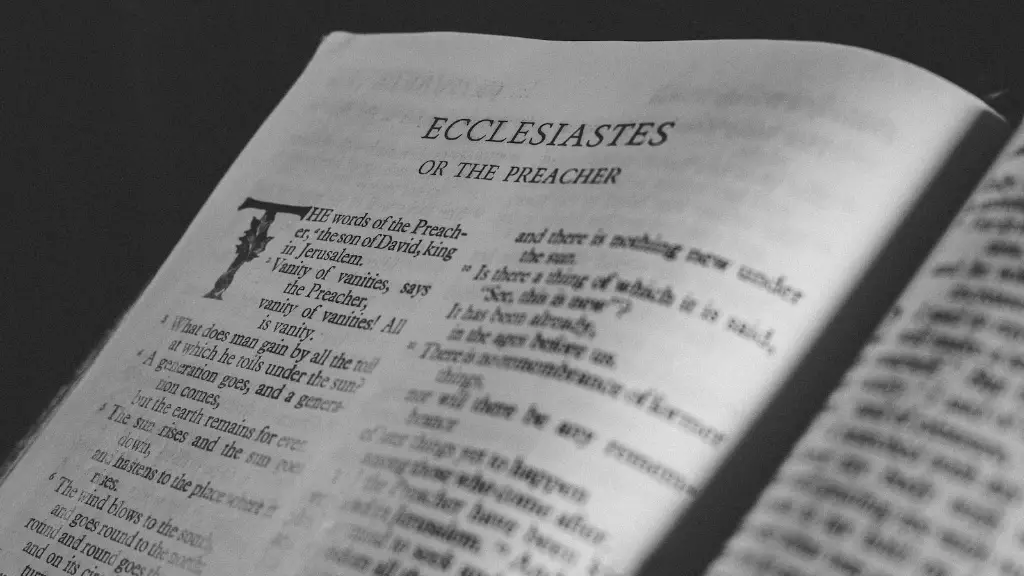The Bible is the one and only source that offers numerous revelations of Jesus’ birth, life and ministry. Throughout both the New and Old Testaments, there is much to be learned about the place of Jesus’ birth. In short, Jesus was born in Bethlehem, a small town about five miles south of Jerusalem.
In Matthew 2:1, we are told that Jesus’ birth occurred in the “town of Bethlehem in Judea.” This is confirmed in the second chapter of Luke when it says, “And it came to pass in those days that a decree went out from Caesar Augustus that all the world should be registered. This census first took place while Quirinius was governing Syria” (Luke 2:1-2). The fact that Jesus’ birth is dated back to the reign of Caesar is normally used to calculate the date of His birth.
According to Bible scholars, the natural and geographical explanations of Bethlehem harmonize with what is recorded in the Bible. Ancient Bethlehem was situated on the road from Jerusalem to Hebron. The site of Bethlehem is still marked by a few ruins in the modern village of Beit-Lahem el-Foka.
Religious experts have especially analyzed Jesus’ birth and concluded that it offered hope for at least two reasons. One is that by living and dying on earth, He showed people that God was truly willing to be with them. As The Catholic Bible Dictionary explains, “He came down that He might draw all people to Himself and unite them as children of God in His redeemed Church.” Secondly, His birth offers hope that doesn’t depend on our abilities but solely on His grace and power to heal and redeem.
Jesus is referred to several times throughout the Old Testament in prophecies of the future Redeemer. One of the most significant prophetic passages comes from the book of Isaiah which says, “For unto us a Child is born, unto us a Son is given; and the government will be upon His shoulder. And His name will be called Wonderful, Counselor, Mighty God, Everlasting Father, Prince of Peace” (Isaiah 9:6). This is an extremely powerful passage that certainly points to Jesus’ birth.
Another clear example comes from the book of Micah which says, “But you, Bethlehem Ephrathah, though you are little among the thousands of Judah, yet out of you shall come forth to Me the One to be Ruler in Israel, whose goings forth are from of old, from everlasting” (Micah 5:2). This passage reveals how the Lord’s messenger had announced that the Messiah, who existed even before the creation of the world, would come from the small town of Bethlehem.
Jesus’ Purpose in Being Born
At the time of Jesus’ birth, Jews proclaimed the ‘Prince of Peace’ as a sign of God’s redemption of His people. The Jews trusted that the Prince of Peace would be God’s agent to make the world a better place and to ease suffering, provide justice and promote peace. As The Catholic Bible Dictionary explains, “He came down that He might draw all people to Himself and unite them as children of God in His redeemed Church.”
Jesus was born to fulfill a mission, to present the saving truth of the Gospel to people. He was born to be an example of how to live as a Christian and to show people that they should trust in God and in His promises instead of in living by their own understanding.
Moreover, Jesus was born to suffer and die for our sins. He was born to be the perfect sacrifice, so that humankind could be forgiven and enter into a restored relationship with God. By taking on a human life, Jesus sacrificed His own life so that we may find redemption.
Jesus’ Birth in the Context of God’s Bigger Plan
God has always had a larger plan for mankind. Jesus’ birth was a part of His eternal plan to bring salvation to mankind and to complete what He had promised in the Old Testament. By coming to earth, Jesus proclaimed the Kingdom of God, and showed the world that He is with us and for us. John 3:16-17 explains, “For God so loved the world that he gave his one and only Son, that whoever believes in him shall not perish but have eternal life. For God did not send his Son into the world to condemn the world, but to save the world through him.”
Moreover, Jesus’ birth was seen as a sign of God’s faithfulness to His people and to His covenant with them. As Ephesians 2:19-20 explains “Consequently, you are no longer foreigners and strangers, but fellow citizens with God’s people and also members of his household, built on the foundation of the apostles and prophets, with Christ Jesus himself as the chief cornerstone.” Jesus’ birth further shows us how we can rely on the Lord in every circumstance and trust that He is always working out His plan for us, even in the midst of chaos and suffering.
Present Day Relevance of Jesus’ Birth
In present day, Jesus’ birth is celebrated around the world to remind people of the significance of His birth and the hope that it carries for mankind. Celebrating His birth is a way for believers to remember the sacrifice that Jesus made for us and to reaffirm their faith in Him. We celebrate Jesus’ birth as a commemoration of His coming and as an assurance of God’s love, mercy and faithfulness.
Christmas also serves as a reminder that our hope lies in Jesus and not in the world. In this way, Jesus’ birth is significant in that it teaches us to look beyond ourselves and our circumstances and to instead focus on the ultimate truth: Jesus is our hope and our salvation.
Jesus’ Birth as a Sign of God’s Love
Jesus’ birth is significant in that it serves as a reminder that God loves us unconditionally and that He has made a way for us to be reconciled to Him. In other words, Jesus was born so that we could have a fully restored and eternal relationship with God. As it says in John 3:16, “For God so loved the world, that He gave His only begotten Son, that whoever believes in him should not perish but have everlasting life.” In this way, Jesus’ birth is a sign of God’s immense love and mercy for us.
Hebrews 4:14-16 explains, “Therefore, since we have a great high priest who has ascended into heaven, Jesus the Son of God, let us hold firmly to the faith we profess. For we do not have a high priest who is unable to empathize with our weaknesses, but we have one who has been tempted in every way, just as we are—yet he did not sin. Let us then approach God’s throne of grace with confidence, so that we may receive mercy and find grace to help us in our time of need.” This passage reminds us that Jesus, through His birth, is an anchor for our faith, an anchor of hope and an anchor of love.
Living a Life of Faith after Jesus’ Birth
Although Jesus is no longer with us on Earth, His birth continues to impact our lives today. His birth offers us hope and the assurance that He is with us, even in our weakest moments. We can hold on to His promises and rely on Him in our lives. This can take the form of prayer, being in community with people of faith, reading the Bible, and engaging in service and stewardship.
Ultimately, Jesus’ birth reminds us that He is our King and that He loves us unconditionally. Therefore, it is up to us to live a life that is pleasing to Him and in accordance with His will. We can learn from Jesus’ example and strive to imitate Him by living a life of faith and trust in God.
Conclusion of Jesus’ Attributes from Birth
The birth of Jesus brings with it a plethora of spiritual blessings to mankind. His birth is a sign of God’s love for us, a reminder that we have hope beyond our circumstances and an assurance that we can rely on Him. Jesus’ birth is a mark of grace and salvation and it is laden with deeper meaning and relevance even in our lives today. We are encouraged to look to Jesus’ birth as a source of inspiration and hope, to trust in Him and to live a life of faith that is pleasing to Him.




